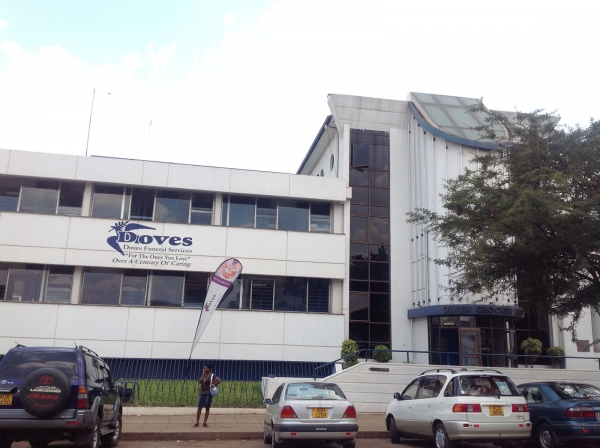The High Court has thrown out a US$4 million claim against the Zimbabwe Platinum Mines (Zimplats) by Doves Funeral Assurance (Private) Limited, after the mining giant cancelled a tender for funeral cover in 2013.

After notifying Doves that it had won the tender to provide funeral cover for its 2000-plus workers in early 2013, Zimplats started preparing a contract which the two parties were supposed to sign, but before the contract was signed, it commissioned auditors Ernst & Young to scrutinise Doves’ books, and the findings did not please the mining firm, resulting in the decision to rescind the contract.
This infuriated Doves, which issued summons demanding US$4,2 million in damages for what it claimed was a breach of agreement.
In its application, Doves wanted the court to declare Zimplats’ decision to cancel the tender unlawful and to order the mining firm to finalise the implementation of the Zimplats Employee Funeral Scheme with it.
Alternatively, Doves wanted to be paid damages amounting to US$4 195 543.
Zimplats responded by arguing that at the material time the purported contract was cancelled, there existed only an intention to contract Doves and nothing had been reduced to writing, so no contract existed.
In its application, Doves insisted that an agreement existed between it and Zimplats for the establishment of the Zimplats Employee Funeral Scheme.
“In terms of clause 1,3 of the invitation to tender, submission of a tender form by any tenderer would constitute an agreement to be bound to a written contract with the defendant whose terms and conditions were set out in the Zimplats general conditions of contract,” Doves argued.
“It was a clear term of the invitation to tender in terms of clause 3.1.2, that the successful tender would be required to provide a funeral scheme to all defendant’s employees and that the defendant would be bound to implement an employee funeral scheme with the successful tenderer. Plaintiff (Doves) duly submitted a tender bid in the manner and time period prescribed in the invitation to tender and thereby plaintiff and defendant became bound by terms of the Zimplats general conditions of contract in the event of plaintiff being adjudged to be the successful tenderer.”
Zimplats applied to be absolved from the claim, an application that High Court judge, Justice Amy Tsanga granted after a full trial.
The trial sought to establish if there existed a valid contract between the two parties, and if so, whether it was lawfully cancelled, and if it was not, if Doves suffered any damages and if so, to what extent.
During the trial, Zimplats through its lawyer, Addington Chinake of Kantor and Immerman, argued that nothing in the initial contact between Zimplats and Doves was binding until it had been signed.
Zimplats argued that the general conditions of contract which Doves was relying on gave Zimplats the discretion to opt out of the contract.
Chinake pointed out that the miner had not been impressed by the fact that Doves had violated the share ratio and liquidity requirements that are set by the Insurance and Pensions Fund Commission (IPEC) and that the audit had become necessary due to issues of solvency, governance and structure of shareholding at Doves.
This, together with non-disclosure of some material issues, had affected Doves’ credibility hence Zimplats’ decision to exercise its discretion not to proceed with the agreement.
Justice Tsanga dismissed the funeral provider’s claim that a valid contract existed between the parties.
“The tender documents reveal a clear intention that the provisions therein would inform the agreement between the parties. The provisions in the tender documents also addressed termination as an eventuality and also the fact that no damages could be claimed,” noted Tsanga, who went on to grant absolution that Zimplats had applied for.
“To avoid absolution, a plaintiff has to make out a prima facie case relating to all elements of the claim. A plaintiff bears the onus of proving the damages it suffered and the quantum thereof. The method applied to calculate those damages must also be appropriate to the claim.
“The evidence by Doves has not shown that there was a final contract or that there was a repudiation of that contract that was outside the tender documents, I cannot see how the tender provisions would cease to apply by virtue of the tender being accepted given that acceptance was to be within the framework of those documents.” Financial Gazette






